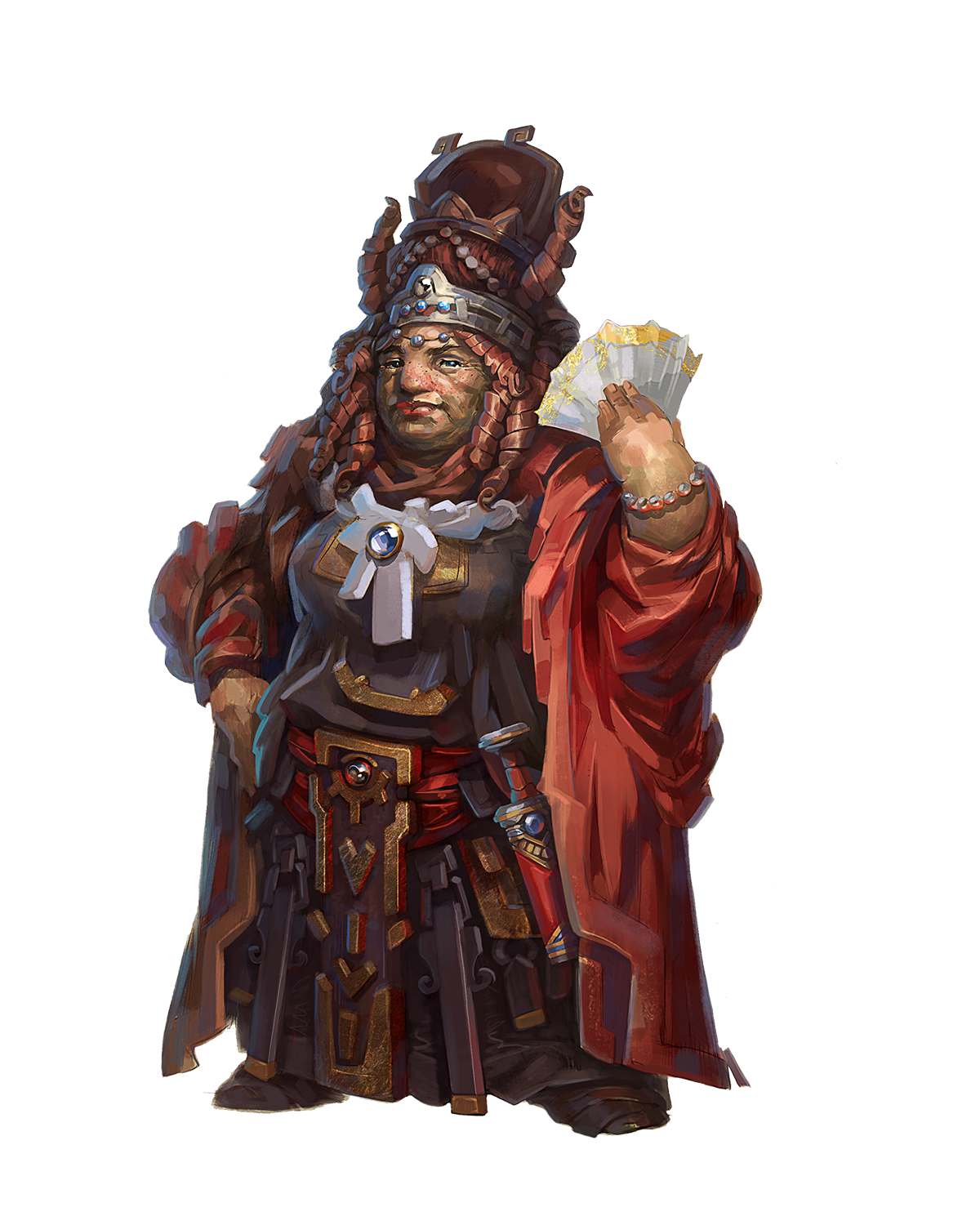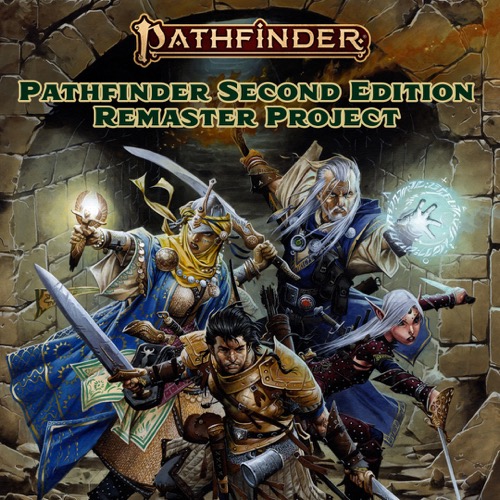Your journey to adventure with the Pathfinder Remaster starts with the Player Core, a mighty tome containing all the rules you need as a player to create a character and take them on epic quests! Just as before, making a character is as simple as ABC: picking your Ancestry, Background, and Class!
This week, we wanted to focus on ancestries a bit to give you a sense of what you can expect from them in the Remaster. Little has changed in for basic ancestry features—you still get starting Hit Points, note your size and Speed, record your attribute boosts and flaws, list out your languages, and so on. The core identity of each ancestry hasn’t changed with the Remaster, so a lot of the descriptive text remains unaltered. But with alignment no longer a part of Pathfinder, we wanted to make sure that you still had a sense of what the ancestry was all about. So, we’ve created popular edicts and anathemas for each ancestry to give you a richer sense of what matters to them, beyond simple good or evil. You can use these as a basis for your character’s code and outlook, taking them as-is for a more traditional approach or tweaking them to spark your own unique ideas for your character. Take a look at the revised Beliefs section of the dwarf ancestry.

Beliefs
Dwarves tend to value honor and closely follow the traditions of their clans and kingdoms. They have a strong sense of friendship and justice, though they are often very particular about who they consider a friend. They work hard and play harder—especially when strong ale is involved. Torag, god of dwarvenkind, is dwarves’ primary deity, though worship of Torag’s family members is also common.
Popular Edicts create art with beauty and utility, hunt the enemies of your people, keep your clan dagger close
Popular Anathema leave an activity or promise uncompleted, forsake your family
As you can see, this gives you a more well-rounded and diverse picture of what members of the dwarven ancestry value as a people. We’re super excited about this change and have already started incorporating this format in our upcoming releases, such as the ardande and talos versatile heritages in Rage of Elements coming out in just a few months!
In addition to this, we’ve taken a hard look at the feats in each ancestry, making sure they’re living up to their design potential. You can expect to see upgrades to several feats to ensure they meet our current design philosophy (I'm looking at you, Stonecunning). Also, we’ve added feats from the Advanced Player’s Guide to the entries in the Player Core. For the dwarf alone, we’ve added Dwarven Doughtiness, Defy the Darkness, and more. Of course, we took this opportunity to create some new feats as well. Take a look at this all-new high-level dwarf feat!
Stonewall [reaction] — Feat 17
Dwarf, Earth, Polymorph
Frequency once per day
Trigger An enemy or hazard’s effect hits you or you fail a Fortitude save against one.The strength of stone overcomes you so strongly that it replaces your stout body. You become petrified until the end of the current turn. You don’t take any damage from the triggering effect or any other ill effects that couldn’t affect stone.
This brings us to the end of our first round of previews, but you can expect to hear a lot more about the Remaster books in the coming months. If you want to learn more, don’t forget to watch our Pathfinder Remaster panel this weekend at PaizoCon Online! We’ll be going live on Friday from noon to 2 pm PST, right after the keynote address, over on the Paizo Twitch. We hope to see you there!
Jason Bulmahn
Director of Game Design
Fine-tuning Ancestries
Wednesday, May 24, 2023












